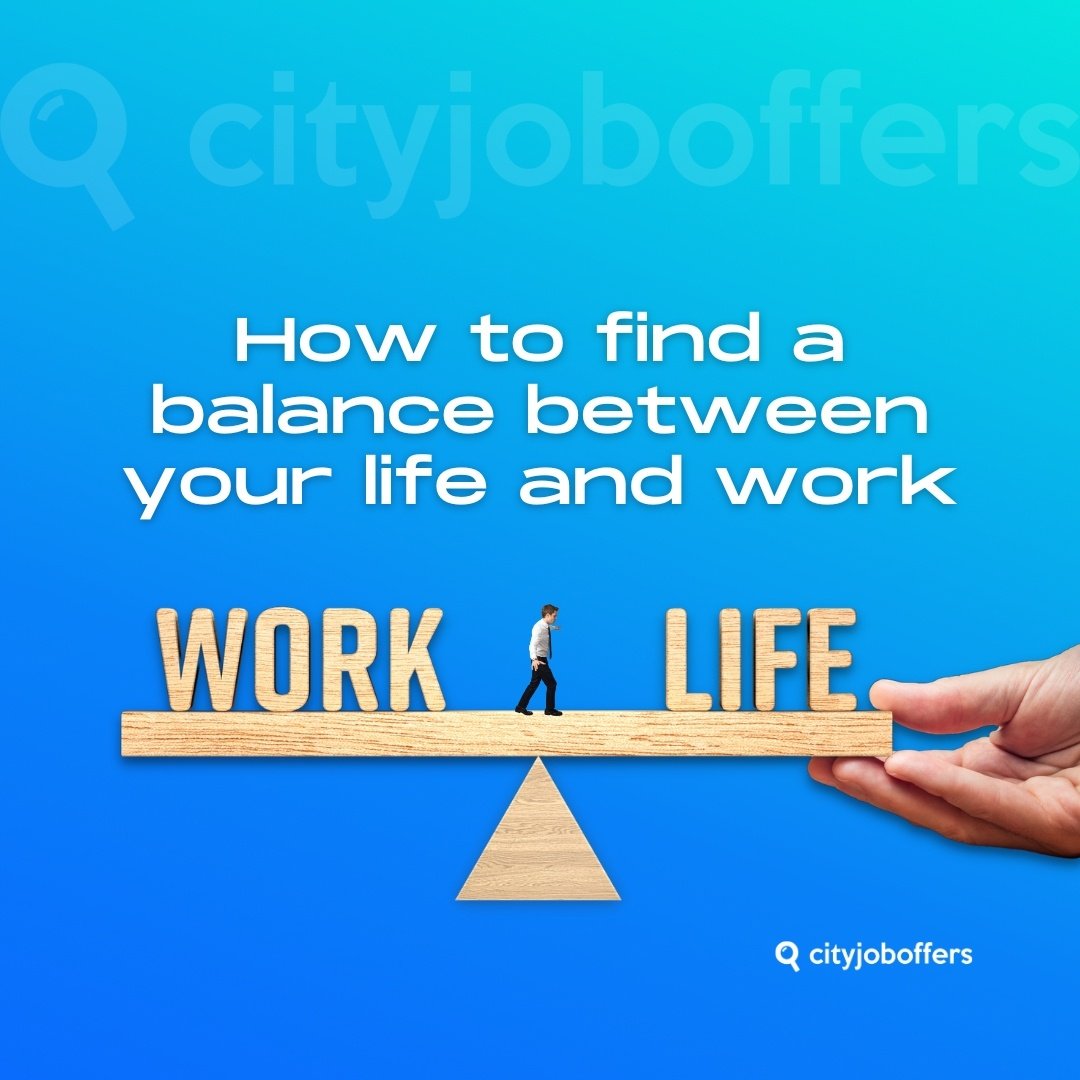What is work-life balance, and why is it important?

How to separate your personal life from your professional life
Work-life balance is exactly what the name says. It is the equilibrium between a person’s professional life and personal life. This means equally prioritizing and satisfying one's work needs and one’s nonwork needs.
One of our society’s biggest problems is mental health, something can become very damaged due to stress and overworking. The separation between work and life has decreased more and more overtime and even more with the technological revolutions of the last decades.
Technology has made everyone available at all hours with the simple click of a button. This has enormous benefits but it has made it complicated to fully disconnect from work.
Now many employers regularly contact their employees out of working hours. This causes stress to the worker and can lead to low creativity, poor customer service, absenteeism, low productivity and decreased retention levels.
Being able to find the balance between work and life can prevent burnouts and improve one’s overall well-being.
The work-life culture profit chain (as seen below) shows how this balance plays a major role for organizations. Work-life balance is crucial for both employers and employees to reach their full potential.
Productivity, creativity, profits, and client satisfaction are just some of the elements that can be hurt if this balance is not properly maintained.

What is a poor work-life balance?
A poor work-life balance can be seen in various ways. It can be understood with these four phrases: feeling unfulfilled, feeling fake, feeling disconnected and feeling exhausted.
Feeling unfulfilled because you may not be doing what you love or your skills aren’t being used for something that is meaningful to you.
Feeling fake because you’re not following your values or beliefs.
Feeling disconnected because you may not be spending time with the people who matter to you.
Feeling exhausted because you’re trying to keep up with both work and personal life activities.
These characteristics can be seen specifically in cases such as:
-
- Feeling stressed or unhappy due to the fact that you are missing out on life events.
- You can’t stop thinking about work even when you’re not at work.
- Relationships with friends, family and coworkers are becoming strained.
- Doing activities that aren’t work seem unimportant to you.
- You have a list of plans and hobbies to do for the day you finally have enough time for them but you just keep pushing them off.
What is a good work-life balance?
A healthy work-life balance allows you to feel fulfilled in both parts of your life. This means being able to meet work goals and deadlines but still having time to hang out with friends.
Having a balanced life means being able to enjoy your hobbies but also having time to sleep well. A very important part of a work-life balance is being able to not worry about work when you’re at home.
It can be hard to fully disconnect as you may think you can get ahead of work or finish any small things but this can turn into a habit. This can be dangerous and won’t allow you to fully relax at home.
How do I improve my work-life balance?
This equilibrium can be hard to reach. The world is messy and not perfect, it’s impossible to complete your goals and desires all at once. You have to be aware of the different demands on your time and energy.
In order to improve your work-life balance you have to start small, build new habits and be patient. You have to make conscious decisions, make time for the most important things, have clear priorities and focus on long-term fulfillment rather than short-term desires.
These are considered the four main areas of life: self (body, mind, spirit), home and family, work or school, and community or society. Now, ask yourself how important each of these are to you at this point in your life. This can help you figure out your priorities and put more energy into what matters most to you.
Other ways to improve your work-life balance are the following:
Work smarter. Give yourself a certain amount of time for different tasks. This will help you focus on the more important things instead of wasting time with irrelevant tasks.
Let your employer know when you’re being overworked or are feeling too much pressure.
Take breaks at work. Have a proper lunch and take a walk outside if possible. Take even a few minutes throughout the workday to disconnect.
Go on vacation. Take time off to prioritize your health. Taking a vacation doest mean it’ll disrupt your workflow, it’s a time for you to recharge. Even if you do nothing, that’s important too. There’s a power in being to decide that you will do nothing and not feel bad about it.
Find a hobby or activity that you love to do outside of work. This will make it easier for you to avoid overworking as you’ll stop at a certain time in order to have time for something that brings you joy.
Create boundaries between work and non-work. When your workday is over, make time for yourself and your loved ones. Your job isn’t your whole life so give yourself time to relax.
Ask for help. If you need help with tasks at work or at home, don’t be afraid to ask for help. You’re only human, you can’t do everything at once. Having help can relieve some of the weight on your shoulders and reduce stress.
The right solution might even be to find a new job or career. Something that you are very passionate about or even just something less stressful. A job that allows you to have time for your own life.



.png?width=352&name=Copy%20of%20Copy%20of%20Copia%20de%20Instagram%20Post%20Most%20looked%20for%20entry-level%20jobs%20in%20Athens%20%20CITY-JOB-OFFERS%20(Post%20de%20Instagram).png)